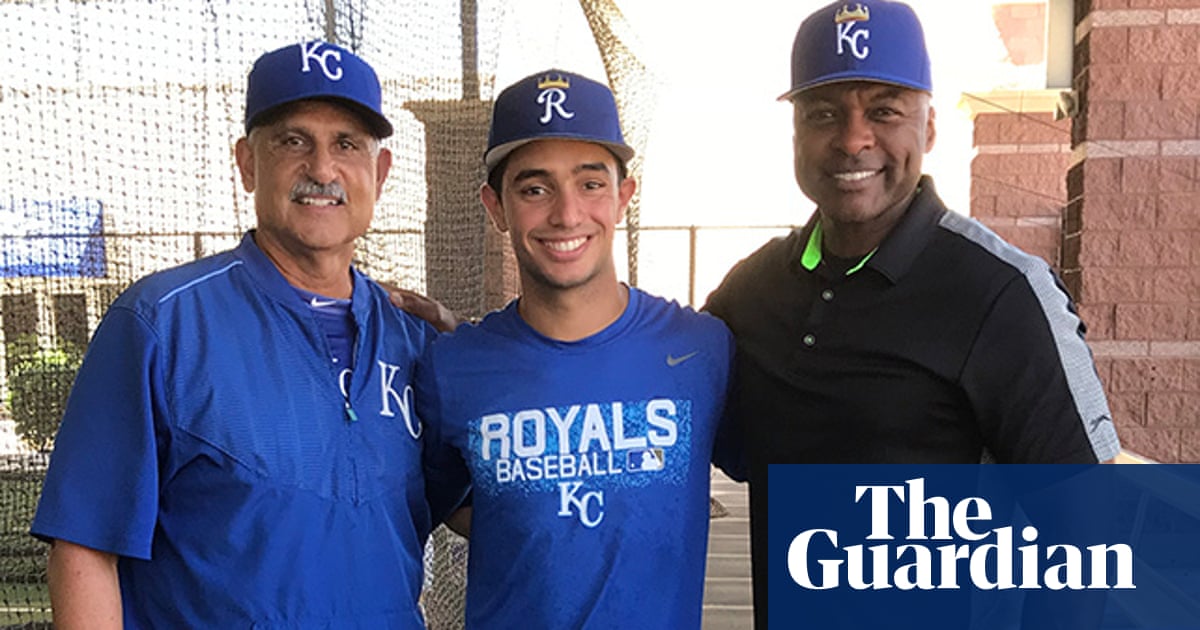When Tarik El-Abour was in middle school, his teacher asked him and his classmates a simple question.What do you want to be when you grow up?When it was time for him to answer, El-Abour gave a reply that thousands of children have said before. He wanted to be abaseball player. But his teacher shot back with something less than encouraging: “You’d better have a Plan B.” El-Abour, who was diagnosed with autism at the age of three, remained undeterred. Rather than listening to his pessimistic instructor, he distanced himself from her.
He thought that if he continued to talk to her, she might convince him he was unable to achieve his goal. In the end, he was right, and the teacher was wrong. El-Abour grew up to become a baseball player after receiving a degree in business administration from Bristol University in California. He first played professionally in the Empire League, where he was named rookie of the year in 2016 and was an All-Star in 2017. Then, in 2018, he signed a deal with the Kansas City Royals, a franchise just three years removed from winning the World Series. He played outfield in the minor leagues duringthe 2018 season, flourishing under the mentorship of JD Nichols of World Wide Baseball Prospects and Reggie Sanders of the Royals, becoming the first recorded autistic player in MLB history.
All of this will be news to the US health and human services secretary, Robert F Kennedy Jr,who said earlier this month that: “Autism destroys families, and more importantly, it destroys our greatest resource, which is our children … These are kids who will never pay taxes. They’ll never hold a job. They’ll never play baseball. They’ll never write a poem. They’ll never go out on a date. Many of them will never use a toilet unassisted.”
El-Abour chooses to let Kennedy’s comments slide off him.
“When it comes to politics,” the 32-year-old tells the Guardian, “I’m so used to crazy stuff being said by people. I’m just in a spot where it doesn’t really get to me. I get that’s just how some things are. The way I look at it, the only things I care about are the things I have control over – like baseball and those I care about most.”
El-Abour, who is now playing in the Zone 22 scouting league in Los Angeles and hoping for another shot at the majors, says he doesn’t know what it’s likenotto be autistic. But he explains that the way his brain works helps him focus and embrace repetition – both valuable qualities for a ballplayer. “Baseball requires a lot of repetition to be good at it,” he says. “And people with autism tend to be repetitive. I guess that’s maybe where it benefits me.”
Kennedy, a fan of doing his own research, may want to note that El-Abour is not the only autistic professional athlete in the US. Tony Snell,who also has two autistic sons, was diagnosed with autism. And he had a nine-year NBA career, playing on several teams, including the Chicago Bulls and New Orleans Pelicans. “Learning I have [autism] helped me understand my whole life,” said Snell in arecent interview. “This is why I am the way I am.” Joe Barksdale, who revealed in 2022 that he was diagnosed with autism, played eight years in the NFL. And Nascar driver Armani Williams also stated publicly he is autistic. Of course, there aremore autistic athletes coming up in the ranks, too.
“It was a surprise when the [Kennedy] news came out last week,” El-Abour’s mother, Nadia, tells the Guardian. “I wanted to post something then Tarik said, ‘No, the [media] will take care of it.’ Tarik started laughing. He goes, ‘Oh, wow, why did he [Kennedy] choose baseball?’”
She says that, unlike some politicians today, her son is very logical. Many autistic people, she explains, don’t attach emotion to the truth. Something simply either is true or it isn’t. “They can’t understand why we don’t accept the truth,” Nadia says. It’s the same reasoning El-Abour employed when flouting his middle school teacher’s “Plan B” idea. In fact, he bristled at it so much that he didn’t even want to be around the energy of the school building, often crossing the street rather than walk near it.
“He doesn’t see obstacles,” Nadia says of her son. “He doesn’t think of ‘I can’t.’ He just thinks, ‘How … how can I do that?’”
El-Abour, who was non-verbal until he was about six years old, started playing baseball later in life, around 10 years old. At first, he was unsure if he liked the game, which his father signed him up for. But when he got into the batter’s box,something happened. He even gave up his spot as pitcher on the team because he was told pitchers don’t bat in the pros. From then on, he arranged his whole life around things that would make him be a better player. He painted an X on the garage to practice his throwing accuracy. He took fly balls into the night with his coaches. Rather than, as Kennedy would have us believe, baseball was something unattainable for El-Abour, it helped him blossom.
Indeed, El-Abour’s life is a far cry from the picture Kennedy Jr and others have tried to paint. But despite any number of ignorant comments, El-Abour says he’s grateful for who he is and proud of what he’s achieved so far in his life. He says “it’s an honor” that people ask him about his autism and he’s glad he can add to the conversation. “It’s very humbling,” El-Abour says, “to be possibly making an impact. Baseball really gave me something that I enjoy and love doing. It always gives me something to be motivated for and to be better at each day throughout my life. And that’s really good.”
